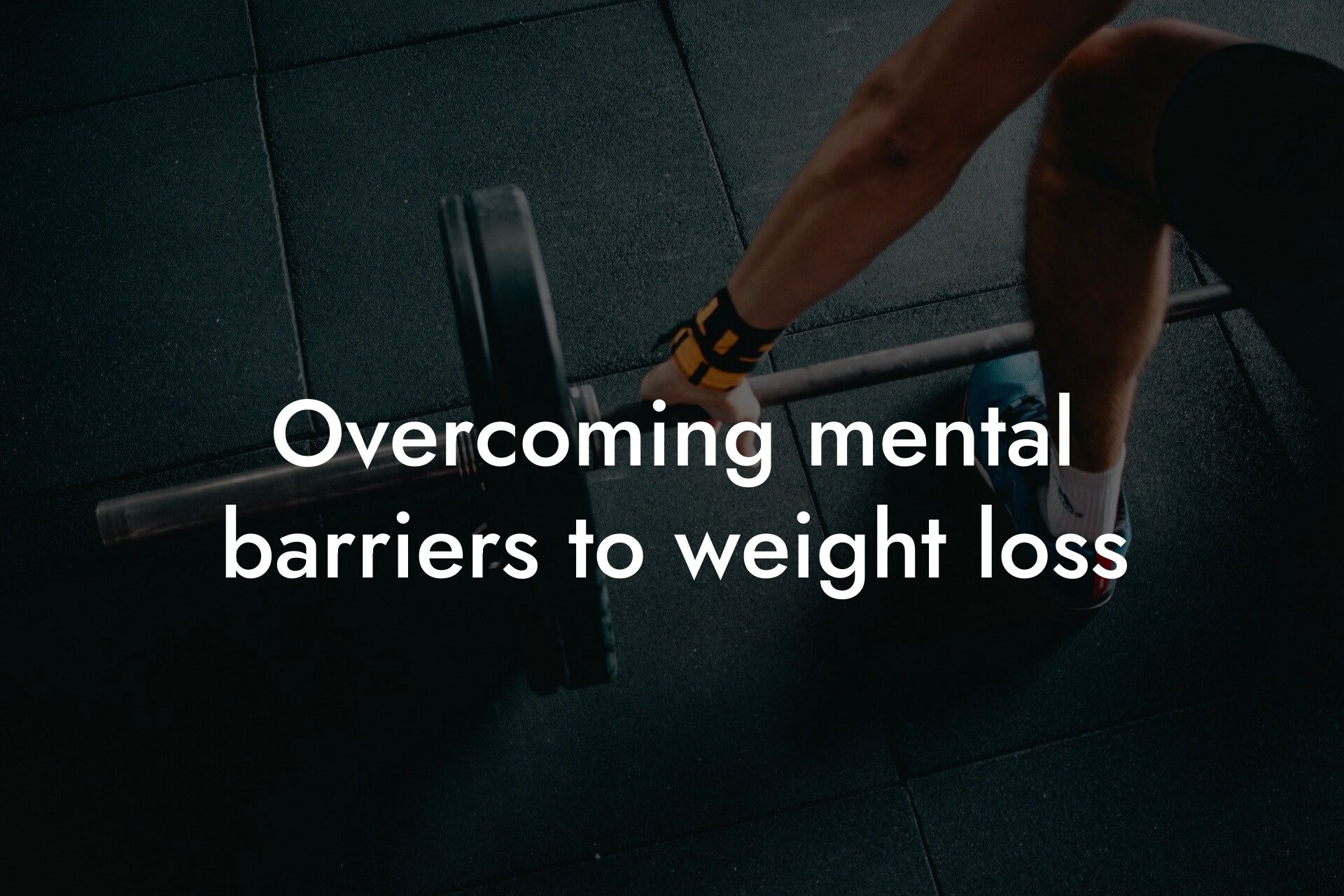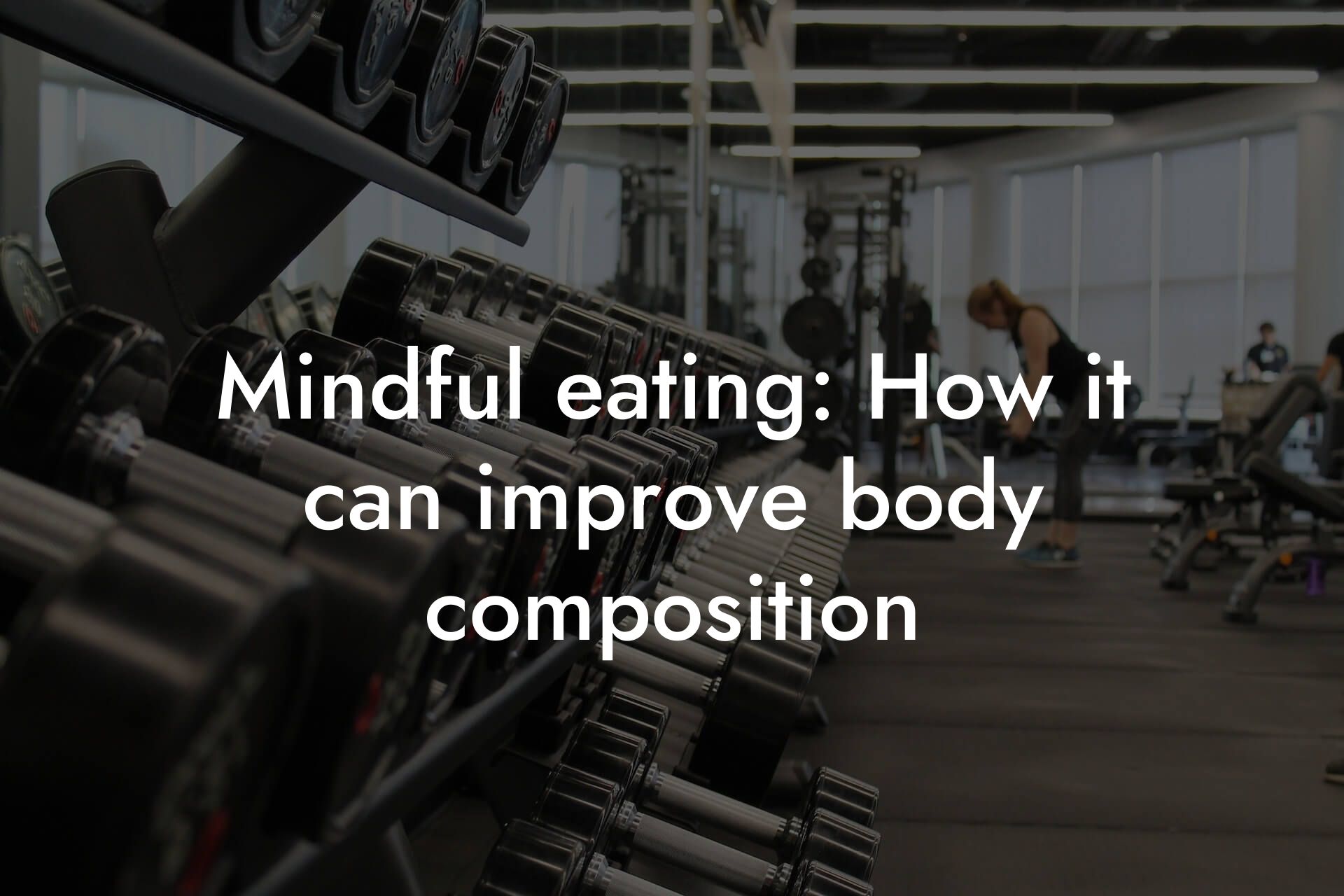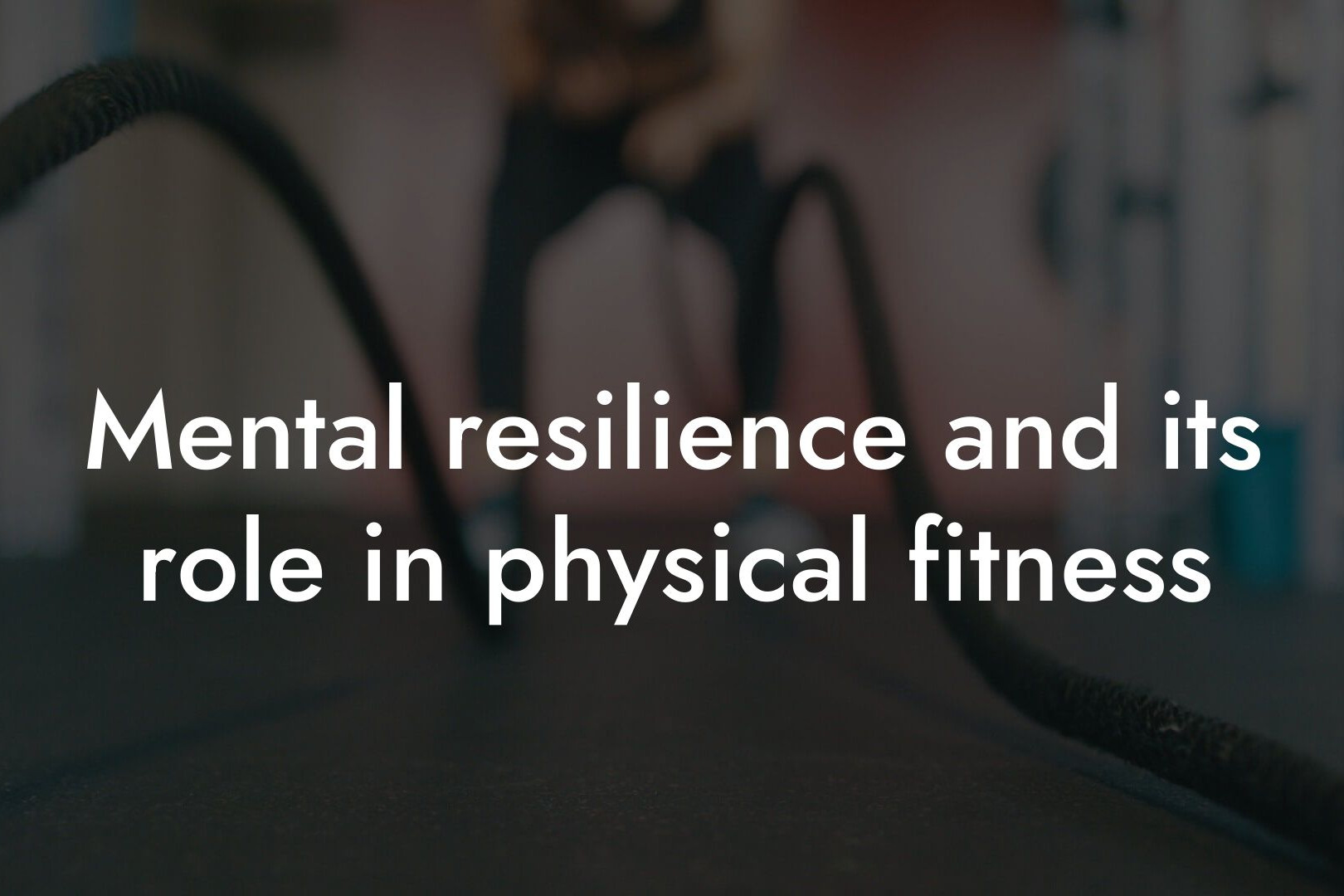As a high-earning professional, you understand the importance of maintaining a healthy and fit physique. Not only does it boost your confidence and energy levels, but it also enhances your overall well-being and productivity. At Tano Performance Group, we believe that achieving fitness success is not just about physical exercise, but also about cultivating a strong mental game. In this article, we'll delve into the world of cognitive-behavioral strategies that can help you overcome obstacles, stay motivated, and reach your fitness goals.
Table of Contents
- Understanding Cognitive-Behavioral Therapy (CBT)
- Identifying Negative Self-Talk and Limiting Beliefs
- Goal-Setting and Visualization Techniques
- Overcoming Fear and Self-Doubt
- Building Self-Efficacy and Confidence
- Creating a Supportive Environment
- Tracking Progress and Celebrating Successes
- Integrating Cognitive-Behavioral Strategies into Your Fitness Routine
- Frequently Asked Questions
Understanding Cognitive-Behavioral Therapy (CBT)
Cognitive-behavioral therapy (CBT) is a problem-focused approach that aims to identify and change negative thought patterns and behaviors that hinder progress. In the context of fitness, CBT can help you recognize and challenge self-defeating beliefs, build confidence, and develop a more positive mindset. By applying CBT principles, you can rewire your brain to support your fitness goals and make sustainable lifestyle changes.
Identifying Negative Self-Talk and Limiting Beliefs
One of the primary obstacles to fitness success is negative self-talk. You may find yourself thinking, "I'll never be able to lose weight," "I'm too old to start exercising," or "I'm not good enough." These limiting beliefs can sabotage your efforts and make you feel stuck. By recognizing and challenging these negative thought patterns, you can begin to reframe your mindset and focus on positive, empowering beliefs.
Goal-Setting and Visualization Techniques
Setting specific, measurable, and achievable goals is crucial for fitness success. However, it's equally important to visualize yourself achieving those goals. Visualization techniques can help you tap into your subconscious mind, build confidence, and stay motivated. Imagine yourself crushing your fitness goals, feeling strong and confident, and celebrating your successes. By incorporating visualization into your daily routine, you can rewire your brain to support your goals and make them a reality.
Overcoming Fear and Self-Doubt
Fear and self-doubt can be significant barriers to fitness success. You may fear failure, injury, or embarrassment, which can hold you back from taking action. By acknowledging and reframing these fears, you can begin to build confidence and develop a growth mindset. Remember, every successful person has experienced setbacks and failures along the way. It's how you respond to these challenges that matters.
Building Self-Efficacy and Confidence
Self-efficacy is the belief in your ability to achieve your goals. When you have high self-efficacy, you're more likely to take action, persevere through challenges, and stay motivated. By celebrating small victories, focusing on progress rather than perfection, and surrounding yourself with supportive people, you can build confidence and develop a strong sense of self-efficacy.
Creating a Supportive Environment
Your environment plays a significant role in your fitness journey. By surrounding yourself with supportive people, removing distractions, and creating a conducive workout space, you can set yourself up for success. Consider finding a workout buddy, hiring a personal trainer, or joining a fitness community to provide accountability and motivation.
Tracking Progress and Celebrating Successes
Tracking your progress and celebrating your successes is essential for staying motivated and committed to your fitness goals. At Tano Performance Group, we use DEXA machine technology to provide a comprehensive body assessment, helping you track your progress and make data-driven decisions. By celebrating small victories and acknowledging your hard work, you can stay motivated and focused on your goals.
Integrating Cognitive-Behavioral Strategies into Your Fitness Routine
Now that you've learned about the power of cognitive-behavioral strategies, it's time to integrate them into your fitness routine. Start by identifying negative self-talk and limiting beliefs, and challenge them with positive, empowering affirmations. Set specific, measurable, and achievable goals, and visualize yourself achieving them. Celebrate your successes, no matter how small, and surround yourself with supportive people. By incorporating these strategies into your daily routine, you can overcome obstacles, stay motivated, and reach your fitness goals.
Remember, fitness success is not just about physical exercise; it's also about cultivating a strong mental game. By applying cognitive-behavioral strategies, you can unlock your full potential, achieve your fitness goals, and maintain a healthy and fit physique for years to come. At Tano Performance Group, we're committed to helping you reach your fitness goals and take your business to the next level. Contact us today to learn more about our comprehensive body assessment and personalized fitness coaching services.
Frequently Asked Questions
What are cognitive-behavioral strategies, and how do they relate to fitness success?
Cognitive-behavioral strategies refer to the mental and emotional approaches used to overcome obstacles and achieve goals. In the context of fitness, these strategies help individuals identify and change negative thought patterns, behaviors, and emotions that hinder their progress. By adopting a cognitive-behavioral approach, individuals can develop a more positive mindset, increase motivation, and make sustainable lifestyle changes that lead to fitness success.
How do cognitive-behavioral strategies differ from traditional fitness advice?
Traditional fitness advice often focuses on the physical aspects of exercise and nutrition, such as creating a workout plan or following a specific diet. Cognitive-behavioral strategies, on the other hand, focus on the mental and emotional aspects of fitness, acknowledging that a person's thoughts, feelings, and beliefs play a significant role in their ability to achieve and maintain fitness goals.
What are some common cognitive-behavioral obstacles that hinder fitness success?
Common cognitive-behavioral obstacles that hinder fitness success include negative self-talk, perfectionism, fear of failure, lack of motivation, and unrealistic expectations. These obstacles can lead to feelings of frustration, anxiety, and disappointment, ultimately causing individuals to give up on their fitness goals.
How can I identify my own cognitive-behavioral obstacles to fitness success?
To identify your own cognitive-behavioral obstacles, take some time to reflect on your thoughts, feelings, and behaviors. Ask yourself questions like: "What am I saying to myself when I look in the mirror?", "What are my biggest fears about exercising or dieting?", or "What are the underlying reasons behind my desire to achieve a certain physique?" Be honest with yourself, and write down your answers. This self-awareness is the first step in overcoming your obstacles.
What is the role of self-compassion in cognitive-behavioral strategies for fitness success?
Self-compassion is a crucial component of cognitive-behavioral strategies for fitness success. It involves treating yourself with kindness, understanding, and acceptance, rather than judgment or criticism. By practicing self-compassion, you can develop a more positive body image, reduce anxiety and stress, and increase motivation to make healthy lifestyle changes.
How can I develop a growth mindset to support my fitness goals?
To develop a growth mindset, focus on learning and progress rather than perfection. Embrace challenges as opportunities for growth, and don't be afraid to make mistakes. Celebrate small victories, and acknowledge that setbacks are a normal part of the journey. Remember, your abilities and intelligence can be developed through dedication and hard work.
What is the importance of goal-setting in cognitive-behavioral strategies for fitness success?
Goal-setting is a critical component of cognitive-behavioral strategies for fitness success. By setting specific, measurable, achievable, relevant, and time-bound (SMART) goals, you can increase motivation, focus, and direction. Break down larger goals into smaller, manageable tasks to maintain momentum and celebrate progress along the way.
How can I stay motivated and consistent with my fitness goals?
To stay motivated and consistent, focus on the process rather than the outcome. Celebrate small victories, and acknowledge the progress you've made. Find an accountability partner or join a fitness community to provide support and encouragement. Reward yourself for milestones achieved, and don't be too hard on yourself when you encounter setbacks.
What role does mindfulness play in cognitive-behavioral strategies for fitness success?
Mindfulness plays a significant role in cognitive-behavioral strategies for fitness success. By being present in the moment, you can increase self-awareness, reduce stress and anxiety, and develop a more positive body image. Practice mindfulness through meditation, deep breathing, or mindful movement to improve your overall well-being and fitness journey.
How can I overcome negative self-talk and develop a more positive body image?
To overcome negative self-talk and develop a more positive body image, practice self-compassion, and challenge negative thoughts by reframing them in a more positive and realistic light. Focus on your strengths and accomplishments, and celebrate your unique qualities. Surround yourself with positive influences, and avoid comparing yourself to others.
What are some common cognitive-behavioral strategies for overcoming fear of failure in fitness?
Common cognitive-behavioral strategies for overcoming fear of failure in fitness include reframing failure as an opportunity for growth, focusing on progress rather than perfection, and developing a growth mindset. Break down larger goals into smaller, manageable tasks to reduce feelings of overwhelm, and celebrate small victories along the way.
How can I develop a more positive relationship with exercise and physical activity?
To develop a more positive relationship with exercise and physical activity, focus on finding activities that bring you joy and make you feel good. Experiment with different types of exercise, and find what works best for your lifestyle and preferences. Celebrate the benefits of exercise beyond just physical appearance, such as increased energy and improved mood.
What role does accountability play in cognitive-behavioral strategies for fitness success?
Accountability plays a significant role in cognitive-behavioral strategies for fitness success. Find an accountability partner, join a fitness community, or hire a personal trainer to provide support and encouragement. Share your goals and progress with others to increase motivation and stay on track.
How can I balance fitness goals with other areas of my life, such as work and relationships?
To balance fitness goals with other areas of your life, prioritize your goals and focus on making sustainable lifestyle changes. Schedule fitness activities into your daily routine, and find ways to incorporate physical activity into your daily tasks. Communicate your goals and needs with others, and find support from loved ones.
What are some common myths about cognitive-behavioral strategies for fitness success?
Common myths about cognitive-behavioral strategies for fitness success include the idea that it's only about "mind over matter," that it's too "touchy-feely," or that it's only for those who are struggling with severe mental health issues. In reality, cognitive-behavioral strategies are evidence-based approaches that can benefit anyone looking to achieve fitness success.
How can I find a qualified professional to help me develop cognitive-behavioral strategies for fitness success?
To find a qualified professional, look for certified fitness professionals or therapists who specialize in cognitive-behavioral therapy and fitness. Research their credentials, read testimonials, and ask questions about their approach and experience. Consider online coaching or consulting services if in-person options are not available.
What are some additional resources for learning more about cognitive-behavioral strategies for fitness success?
Additional resources for learning more about cognitive-behavioral strategies for fitness success include books, online courses, and podcasts focused on the topic. Follow fitness professionals and therapists on social media, and engage with online communities to connect with others who share your interests and goals.
How can I apply cognitive-behavioral strategies to other areas of my life beyond fitness?
Cognitive-behavioral strategies can be applied to other areas of your life beyond fitness by recognizing that the same principles of self-awareness, goal-setting, and mindset shifts can be used to overcome obstacles and achieve success in any domain. Apply the strategies you've learned to areas such as career development, relationships, or personal growth to achieve a more balanced and fulfilling life.
What is the role of self-care in cognitive-behavioral strategies for fitness success?
Self-care plays a critical role in cognitive-behavioral strategies for fitness success. By prioritizing self-care, you can reduce stress and anxiety, increase motivation, and improve overall well-being. Make time for activities that bring you joy and relaxation, such as meditation, reading, or spending time with loved ones.
How can I maintain progress and avoid plateaus in my fitness journey?
To maintain progress and avoid plateaus in your fitness journey, continue to challenge yourself by setting new goals and trying new activities. Celebrate small victories, and acknowledge the progress you've made. Stay accountable, and seek support from others when needed. Be patient and kind to yourself, and remember that setbacks are a normal part of the journey.
What is the importance of patience and persistence in cognitive-behavioral strategies for fitness success?
Patience and persistence are crucial in cognitive-behavioral strategies for fitness success. Recognize that fitness is a journey, not a destination, and that progress may not always be linear. Stay committed to your goals, and celebrate small victories along the way. Remember that setbacks are opportunities for growth, and don't give up on your goals.
Here are some related articles you might love...
- Overcoming mental barriers to weight loss
- Mindful eating: How it can improve body composition
- Mental resilience and its role in physical fitness
- The role of visualization in achieving fitness goals
- The impact of chronic stress on body fat
- How meditation supports physical health
- The psychology of body image among professionals
- Body positivity vs body optimization: Finding balance
- How stress management improves body composition
Zak Faulkner
Zak Faulkner is a leading authority in the realm of physical health and body composition analysis, with over 15 years of experience helping professionals optimise their fitness and well-being. As one the experts behind Tano Performance Group, Zak has dedicated his career to providing in-depth, science-backed insights that empower clients to elevate their physical performance and overall health.
With extensive knowledge of DEXA technology, Zak specializes in delivering comprehensive body assessments that offer precise data on body fat, muscle mass, bone density, and overall physique. His expertise enables individuals to make informed decisions and achieve their fitness goals with accuracy and confidence. Zak’s approach is rooted in a deep understanding of human physiology, combined with a passion for helping clients unlock their full potential through personalised strategies.
Over the years, Zak has earned a reputation for his commitment to excellence, precision, and client-focused service. His guidance is trusted by top professionals who demand the best when it comes to their health. Whether advising on fitness programs, nutritional strategies, or long-term wellness plans, Zak Faulkner’s insights are a valuable resource for anyone serious about taking their health and fitness to the next level.
At Tano Performance Group, Zak continues to lead our Content Team revolutionising how professionals approach their physical health, offering unparalleled expertise that drives real results.




